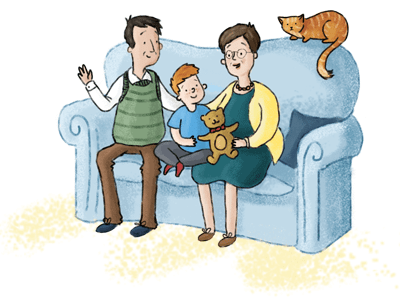
It is sometimes the case that a Local Authority has serious concerns relating to the care of a child or children and in those circumstances they may issue an application to the Court for a formal Order relating to that child or children to ensure their safety.
There are many different Orders available to the Court and so this article aims to set out those Orders and the implications of said Order.
Emergency Protection Order
Often referred to as an EPO, an Emergency Protection Order is an Order that the Local Authority will apply for when they have concerns that a child or children are in immediate danger. An application for an EPO is usually followed by the Local Authority issuing Care Proceedings. Should this Order be granted then the child or children could be immediately removed from their parent or carer and placed in a safe placement, for a short amount of time. An EPO can last for up to eight days and can be extended for a further seven days if the Local Authority apply to the Court for permission to do this. Usually, when an EPO is in force the Local Authority will initiate Care Proceedings at which point they would apply for a lengthier interim order such as an interim care order, or an interim supervision order.
Supervision Order
A Supervision Order is usually made at the conclusion of the proceeding when a child or children are able to remain in the care of their parents or an alternative carer but it is the social workers duty to the family to “befriend, advise and assist” the child. The Local Authority would not have parental responsibility for the child or children under this Order but would continue to visit the family regularly and offer support under the Order. The Order may last for up to one year following conclusion of the proceedings but the Local Authority, if concerns remained, could then apply back to the Court to have the same extended.
Care Order
Under a Care Order the Local Authority would share parental responsibility for the child or children with their parents. A child or children could be placed at home with parents under a Care Order or alternatively there could be a recommendation that child remain in long term foster care. Usually, a Care Order will last until the child attains the age of 18 but should a parents circumstances change then they could apply back to Court to have the Order discharged with a view to the child or children returning to their care. When a Care Order is in force the Local Authority have permission to make decisions for the child, but the parents should always be kept informed.
Placement Order
This Order is usually applied for towards the conclusion of proceedings where assessments of parents and any alternative carers, usually for much younger children and babies, have concluded negatively. This Order gives the Local Authority permission to place the child for adoption and is only usually granted when it has not been possible to find a suitable long-term carer for the child. A Placement Order is usually made alongside a Care Order at the conclusion of proceedings.
Adoption Order
This is usually the final Order made in relation to a child subject to a Care Order and a Placement Order and completely removes a parents parental responsibility for the child, making the child’s adoptive parents their official “parents” with full legal responsibilities. Parents should always be informed then the Local Authority initiate such proceedings for an Adoption Order and should be given the opportunity to respond to that application.
Bromleys have a large team of expertly trained solicitors who can assist you, if you have any questions please urgently contact Terri Lock by email tlock@bromleys.co.uk or call on 0161 331 3881.











